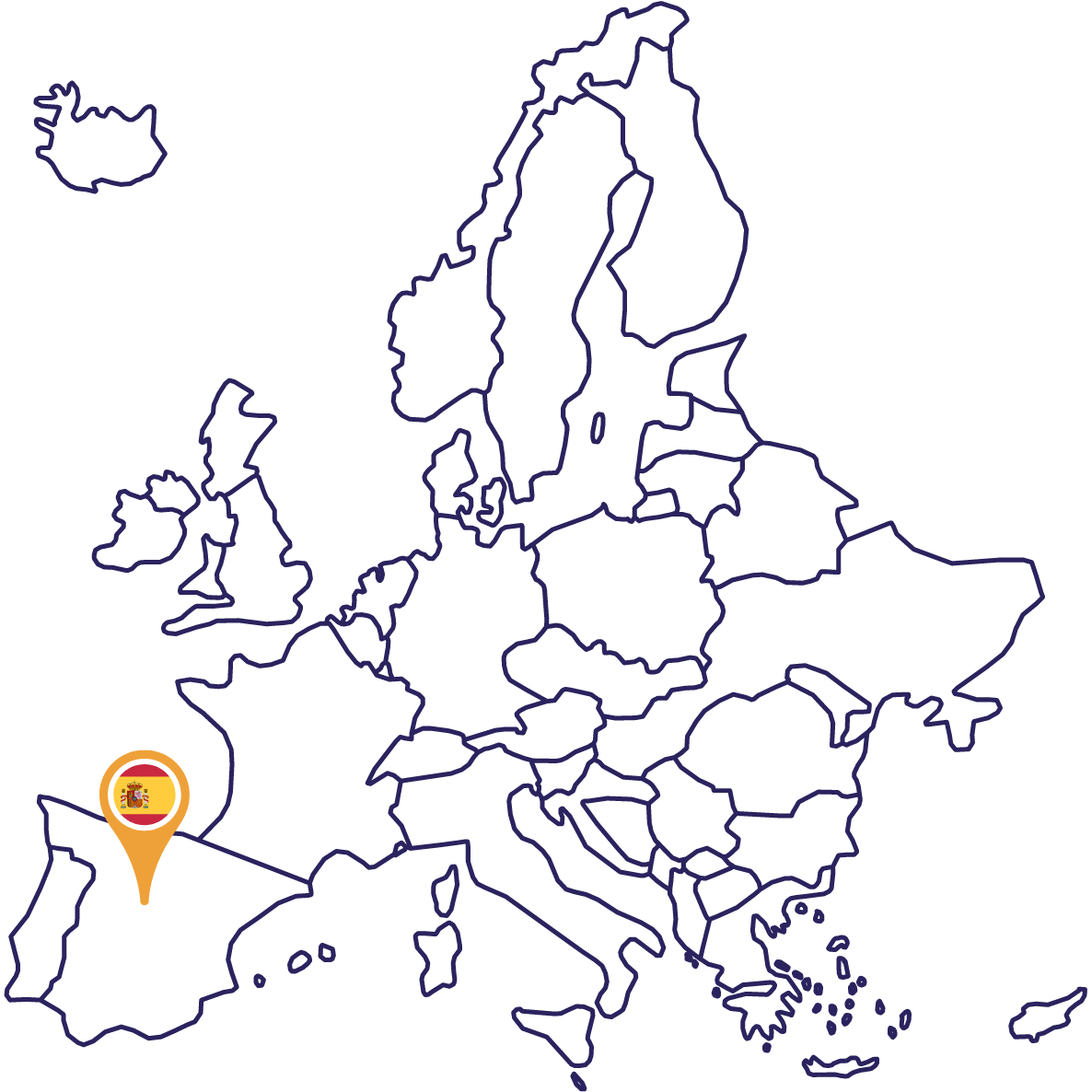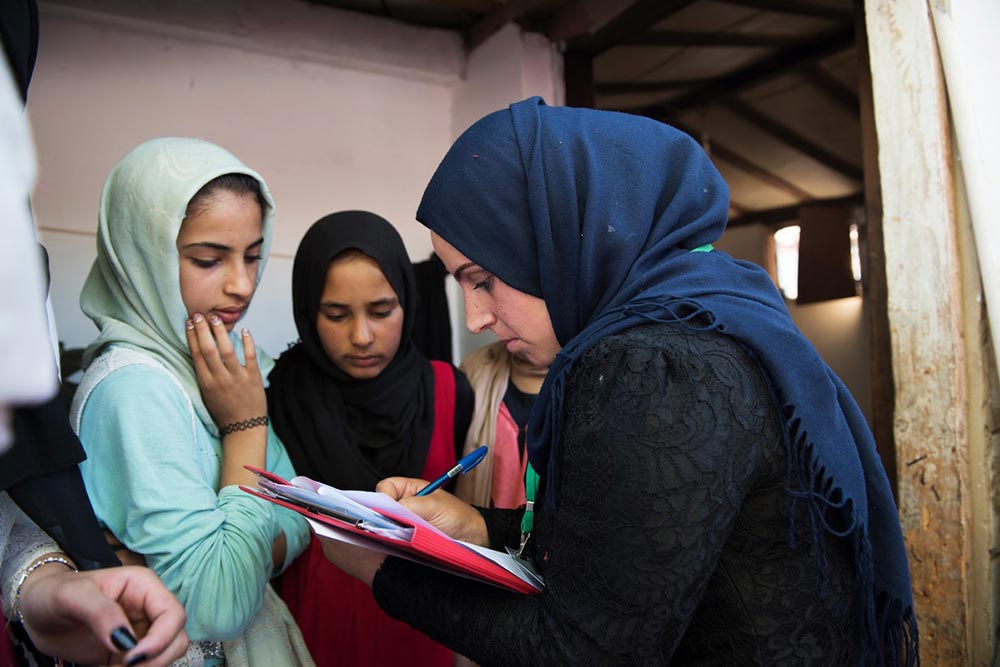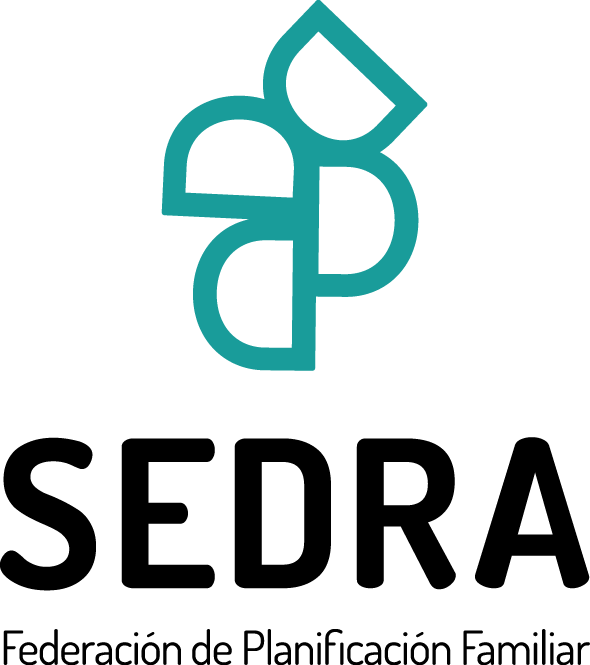Country Profiles
Spain
Context
Further to managing the COVID-19 pandemic, the crisis in Ukraine impacted Spain with the challenge of attending to the needs of refugees, without neglecting other areas of development cooperation and humanitarian aid, and bringing at the same time new defence spending commitments within the NATO framework.

In early 2023, the Parliament approved the new Law on Cooperation for Sustainable Development and Global Solidarity, which updates cooperation legislation and aligns it with the 2030 Agenda. The law establishes a clear and inexcusable path for cooperation funds to reach the historic – and never achieved – 0.7% of GNI by 2030, and with a marked commitment to inclusive and sustainable development and human rights, which particularly affect women and girls, and incorporates a feminist approach in cooperation policy. In this regard, the current government has set out to make gender equality a distinctive element of its foreign policy. In 2021, it launched a Feminist Foreign Policy Guide that addresses gender equality as a cross-cutting issue and contemplates, among other aspects, the promotion of sexual and reproductive health and rights (SRHR). The implementation strategy of this Guide is yet to be published.
The General State Budget for 2023 includes a strongly expansionary character, driven by the Next Generation EU funds. The biggest increase is observed in the defence chapter, which is up by 25.8%, and in response to the commitment made to NATO. In contrast, the planned expenditure on foreign policy and development cooperation, at 2.426 billion Euros, is only 7.6% higher than the 2.256 billion Euros allocated to this item in the 2022 budget, which had in turn increased by 19.7%. As for Official Development Assistance (ODA), adding the State’s contribution to that of other territorial administrations, the total estimated amount for 2023 would be around 4.419 billion Euros, which represents 0.34% of GNI. These figures are still far from the NGOs’ demands for these budgets and the commitment made by the government to reach 0.5% in this legislature, in order to advance towards the 0.7% target reflected in the 2030 Agenda.
Policies & funding

Spanish Development Cooperation is conceived as a public policy that seeks to respond to global problems and to develop actions aimed at achieving the Sustainable Development Goals of the 2030 Agenda. Within the framework of these goals, a comprehensive reform of the Spanish Development Cooperation system and its legal framework has been undertaken, and the first steps are being taken in the preparation of the Master Plan VI, which is expected to begin to be implemented in 2023.
According to the draft General State Budget for 2023, the Ministry of Foreign Affairs, European Union and Cooperation will have three main budgetary instruments: the Spanish Agency for International Development Cooperation (AECID), with a budget of 698 million Euros; the Fund for the Promotion of Development, with 375 million Euros; and the Cooperation Fund for Water and Sanitation, with 57 million Euros.
AECID increased its funds by 42%, the largest increase in more than a decade, but leaving the agency’s budget still at less than 15% of total ODA, which is insufficient for the institution responsible for executing most of the Spanish Development Cooperation budget. CSOs had proposed the creation of a Feminist Cooperation Office in the framework of the AECID reforms, but this does not seem to be included in the draft budget.
The reform of Spanish Development Cooperation and the promotion of the Feminist Foreign Policy are important steps, but they require the necessary resources and adequate indicators, something that is not yet included in the draft budget for 2023. In particular, it would be necessary to ensure sufficient investment in the area of sexual and reproductive health and to have indicators to measure gender impact.
In 2021, Spain contributed almost 24 million Euros to SRHR, to mitigate the effects of the COVID-19 crisis in health systems and guarantee the response to SRH needs, such as strengthening health systems for access to family planning; responding to GBV; pursuing the elimination of harmful practices such as child marriage and FGM; and advocating in the area of gender equality. This overall amount includes almost 8 million Euros going specifically to SRH/FP. Furthermore, Spanish contributions to UNFPA benefitting SRHR achieved 5 million Euro, of which 3.7 million were for SRH/FP.
Regions contributed to this support. Part of the Spanish SRH/FP spending in 2021 included the Basque Country Government’s contributions to the Joint Programme on Essential Services for GBV and UNFPA’s programmes ‘We decide’ and ‘Addressing GBV and SRH needs of women and youth as part of mixed migration humanitarian response’ in Bosnia-Herzegovina, as outcomes of the Nairobi Summit. Following parliamentary advocacy work in the Basque Country led by Sedra-FPFE, the regional government also approved a new agreement focused on supplies in humanitarian settings for 2022, which will continue in 2023 (according to the informal declaration during the Parliamentary Conference on SRHR in international cooperation and humanitarian contexts). The government of Catalonia has also supported UNFPA’s programme on prevention and response to GBV in the humanitarian context in Libya and Palestine in 2021.
It is important to highlight that in 2021 the Spanish government did not provide core funds to UNFPA or UNICEF, as a result of political decision. This situation is however expected to be reverted in 2023, when core funding from Spain to UNFPA is expected to amount to 250.000 Euro. Furthermore, in 2022 the Spanish government committed to contribute to IPPF a grant with the amount of €200,000 to its Arab World Regional Office based in Tunis. Such contributions may indicate that Spanish overall support to the SRHR agenda will at least be sustained until new elections, taking place in 2023.
Internationally vocal
In a speech to the General Assembly of the United Nations (UNGA) in September 2022, the Prime Minister, Pedro Sánchez, made a particular reference to the “global threats to women’s sexual and reproductive freedom”, highlighted the legislative advances made in Spain in terms of sexual freedom and SRHR and publicly committed to “contribute 100 million euros over the next three years to organisations working on gender equality, especially on reproductive and sexual rights, including UN Women”.
Sánchez reiterated his commitment to increasing Spain’s ODA to 0.7% of its gross national income by 2030, in addition to allocating 237 million Euros from 2023 – 2026 to foster global health initiatives, including a 130 million Euros pledge to the Global Fund to Fight AIDS, Tuberculosis and Malaria (Global Fund) and other instruments related to pandemic preparedness and global health R&D.

Key documents
- Country factsheet 2021-2022-Spain.pdf
- Masterplan of international cooperation 2018-2021
- National action plan for implementation of the 2030 Agenda
- “Gender in Development” Strategy of the Spanish Cooperation
- Health strategy of Spanish cooperation
- Humanitarian Action Strategy of the Spanish Cooperation 2019-2026
- Sustainable Development Strategy 2030
Progress Report 2022 of the 2030 Sustainable Development Strategy, Executive Summary

